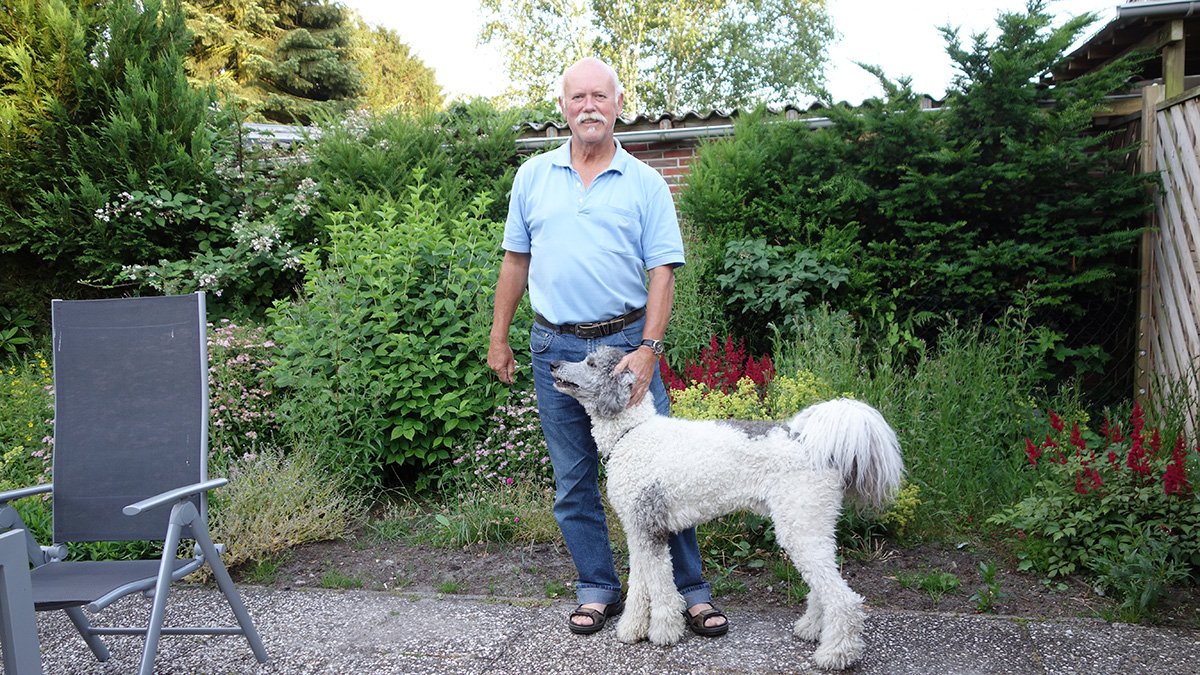
About David Qualey
David Qualey is an accomplished American guitarist and composer. He is known for his contributions to the classical guitar repertoire and his pioneering work in the field of classical guitar.
Greetings
“Greetings to one and all from us two, David & Django. I hope this finds all of you in good spirits and enjoying the music!".
David Qualey was born on December 30th, 1947 in Salem, Oregon. David's introduction to the guitar began in 1957 with a course at a music school in Sacramento, California. During the 60's David broadened his musical experience by playing in different ensembles, but by the beginning of the 70's he had gone his own way in establishing himself as solo guitarist and composer. Through a recognisable sound and character in his playing he has made a name for himself among guitarists. Music critics are amazed at the refinement of his playing, the many tone colors in sound, and the technical virtuosity which makes the lightness and ease of his playing possible.
Since 1974 David Qualey has resided in Europe as performing concert artist and composer. His music is used often for film and television, and he has appeared as guest soloist on different radio and TV programs, as well as European concert tours with guitarists such as Leo Kottke and Baden Powell. He has recorded four LP's of solo compositions and one LP of popular arrangements with the Teldec and Stockfisch companies. One of David's solo albums also appeared on the Windham Hill label under the title "Soliloquy". His arrangement of J.S. Bach's "Jesu, Joy of Man's Desiring" also appeared on the Windham Hill LP "Winter's Solstice" which was nominated in 1987 for a Grammy Award. If you happen to be a George Winston fan, you may remember seeing David's name on his "December" album as inspiration for George's arrangement of "Joy".
With the publication of his compositions in several editions David has received the attention, appreciation, and popularity of guitarists in many countries. Not only are his compositions performed and recorded by other guitarists, but they are also recorded with piano, vibraphone, marimba, and zither. David is not only a guitarist's guitarist, but also a musician's musician.
To write something about David Qualey's music one must be a poet who knows his job as brilliantly as David does his guitar. Such an attempt will not be taken at this time, because the danger of a disaster is quite large. Perhaps it's better to compare Qualey's music with that of Debussey. Both are masters of the tone poem, the airy and colorful impressionism, the mood maker that brings the listener to dream and meditate. The compositions express musical feelings to be grasped directly and spontaneously by the listener, rather than using academic intellectualism typical of much modern music. Along with this aspect David has a charming stage presence, giving short explanations to his pieces and how they were developed-often with a twinkle in his eye- reflecting the humor of a man who sees and hears the changes in life with the eyes and ears of his guitar.
